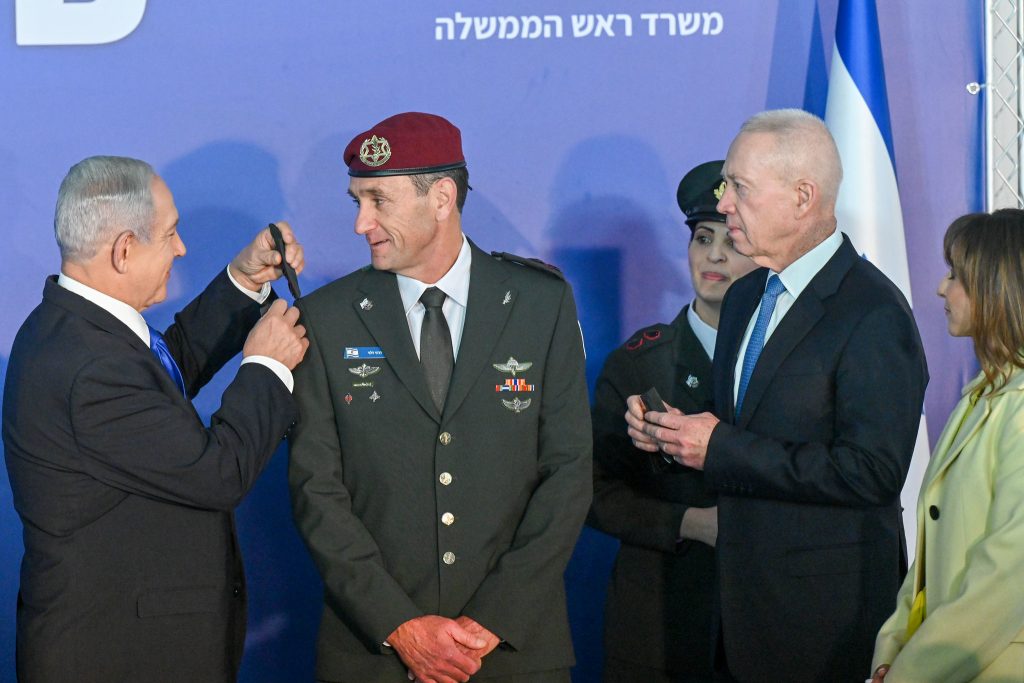Australia/Israel Review
The Mission of Gen. Herzl Halevi
Jan 30, 2023 | Foundation for Defense of Democracies

Maj. Gen. Herzi Halevi assumed command of the Israel Defence Forces (IDF) on Monday, Jan. 16, bringing both command experience and an intelligence analyst’s caution to a role likely to be tested on multiple fronts against both the regime in Iran and those trying to thrust the IDF into domestic politics.
Halevi, 55, succeeds Lt.-Gen. Aviv Kochavi, who as top general had championed investment in military technologies and a high-lethality operational doctrine meant to win wars in short order.
Halevi’s background in Special Forces and Intelligence
A former commander of the General Staff Reconnaissance Unit (Sayeret Matkal) – Israel’s counterpart to the US Army’s Delta Force and Britain’s Special Air Service – Halevi led the IDF Paratroopers Brigade into the Gaza Strip during Operation Cast Lead of 2008-2009.
He went on to serve as chief of the Military Intelligence Directorate and to head the IDF’s Southern Command. Halevi was a proponent of Israel’s use of live fire against Hamas-orchestrated Gaza border riots, which he described as a last resort given the impracticality of non-lethal methods in the face of possible armed incursions. Halevi also oversaw Operation Black Belt, which eliminated part of the Palestinian Islamic Jihad leadership in the enclave.
Insulating the IDF from domestic politics
Lanky and laconic, Halevi was born in Jerusalem to a storied religious-nationalist family. He does not wear a skullcap in public – a choice some Israeli commentators see as designed to remove himself, and the conscript forces he now leads, from the synagogue-versus-state debates that are roiling Israeli society.
A graduate of the National Defense University in Washington, Halevi also holds degrees in philosophy and business administration and has described the former discipline as more practical. “Philosophers that spoke about how to balance, how to prioritize principles in a right way … (t)his is something that I find very helpful,” Halevi told The New York Times in 2013, when he was a division commander on the Lebanese border.
Experts weigh in on Halevi’s key challenges
“Halevi is ready for a looming showdown with Teheran. He has vast experience in the Iranian arena, battling Iranian proxies like Hezbollah and Palestinian Islamic Jihad, and drafting Israel’s strategic forecasts as intelligence chief. He will need to ensure that the IDF is capable of both delivering a decisive strike to neutralise Iranian nuclear facilities and of countering unprecedented missile barrages from Hezbollah and Hamas – possibly simultaneously. That Halevi has no obvious political leanings and, to judge from public statements, has already earned the trust of Prime Minister Benjamin Netanyahu, suggests that the Israeli chain of command is solid.” Mark Dubowitz, FDD Chief Executive
“Newly appointed Israeli Defense Minister Yoav Galant recently declared that he would ‘ensure outside pressures – political, legal and others – stop with me and do not reach the gates of the IDF.’ Halevi must do the same. The IDF chief of staff has always been an apolitical figure in Israel. Halevi understands this well. His neutrality and singular focus on the national defense will be crucial against the backdrop of an increasingly complex political landscape in Israel.” Jonathan Schanzer, FDD Senior Vice President for Research






